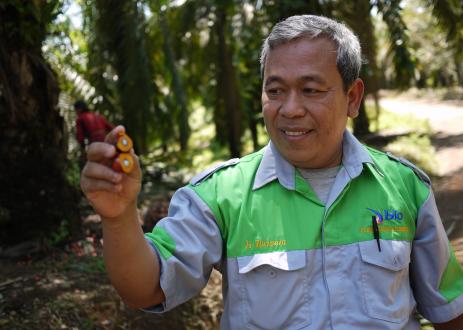Meraih Lahan
Hambatan Kelembagaan yang Menghambat Penyelesaian Konflik Lahan di Indonesia

Ringkasan
Laporan ini membahas tentang kelembagaan dalam penyelesaian konflik lahan di Indonesia, berfokus pada struktur lembaga dan kapasitas pemerintah di tingkat nasional, mengesampingkan peradilan dan pemerintah lokal. Laporan ini menginformasikan gambaran umum tentang konflik lahan di Indonesia, sebaran kewenangan pertanahan di Indonesia, sebaran kewenangan antarlembaga pemerintah di tingkat nasional dalam penyelesaian konflik lahan, bagaimana pengaruhnya terhadap upaya penyelesaian konflik, serta faktor-faktor lain yang menghambat upaya lembaga upaya untuk menyelesaikan konflik pertanahan secara efektif.
Highlights
Publikasi ini untuk sementara hanya tersedia dalam Bahasa Inggris.
- Based on an extensive investigation, this report applauds the Indonesian government’s current programs and initiatives to resolve land conflicts. Land conflicts threaten to slow down the country’s economic development and equitable management of natural resources.
- However, more progress can be made, especially in overcoming institutional obstacles. This report identifies the institutional barriers the government will need to overcome to further address the country’s persistent land conflicts.
- Among them, overly administrative, ad hoc, and reactive approaches have left the nation without a coherent strategy to address the underlying structural problems that continue to trap communities, corporations, and governments in land conflicts.
- This is compounded by a complex and scattered set of uncoordinated institutions and further weakened by a lack of skilled workers, clear operational mechanisms, accurate data information systems, and funding.
- Corruption and conflicts of interest are rampant throughout Indonesia’s land administration, which further intensifies the conflict between the powerful and the weak. The nation’s top leaders will need to show leadership and strong political will to break the gridlock and jump-start reform to improve land conflict resolution.
- This report concludes that an innovative institutional model that addresses these institutional barriers needs to be revised to improve land conflict resolution.
Proyek

Forests and Landscapes in Indonesia
Kunjungi ProyekAnalisis berbasis data dalam rangka mendukung aksi nyata pemerintah dan masyarakat sipil dalam penggunaan lahan yang efektif dan berwawasan di Indonesia.
Bagian dari Hutan